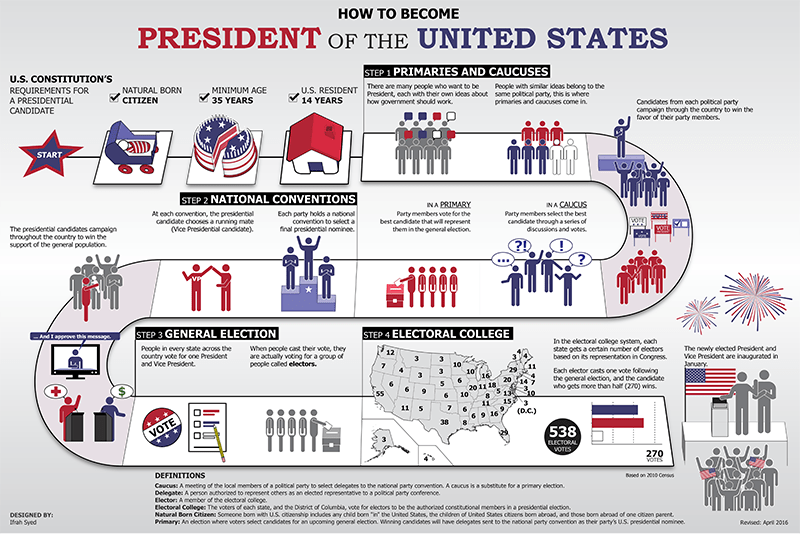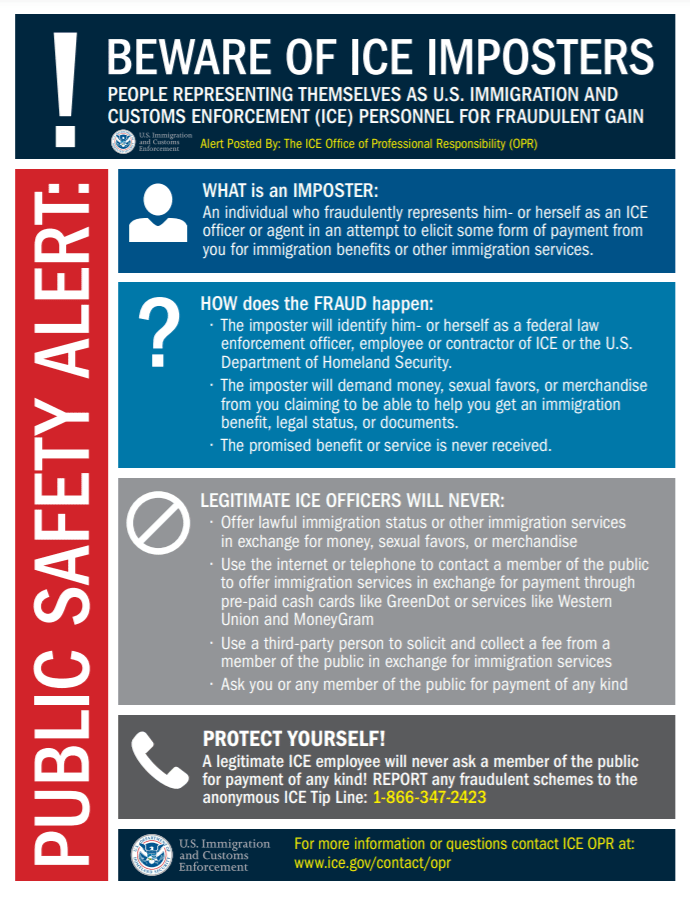
2020 ELECTION MADNESS
On November 3rd, 2020, our country will be selecting the 46th President of the United States! But, how did we end up with Joe Biden and Donald Trump as the two main presidential candidates? Unfortunately, it’s not a straightforward path to the presidency, in fact, it’s a circuitous path rife with twists, turns, complicated rules, and exceptions. Here’s a summary below to explain how one could become President of the United States.
ELIGIBILITY
To be eligible for the presidency of the U.S., one must fulfill certain required criteria first. Not everyone can be president, fortunately, or unfortunately, depending on your perspective. You must be at least 35 years old and born in the U.S. Even if you are a naturalized U.S. citizen, that is, you were born in another country but eventually gained citizenship, you will not be eligible to become President of the United States. In addition, along with having been born in the U.S., you must have physically resided in the U.S. for at least 14 years. This means that someone who is born in the U.S. must also live in the U.S. for a required period of time and fulfill a residency requirement.
PRIMARIES & CAUCUSES
You’ve probably already heard of the “Iowa Caucus” or the “New Hampshire Primary.” Primaries or Caucuses are held in all 50 U.S. states, commencing at the beginning of the election year, to determine the “best” candidate for President from a particular political party. This is determined by votes of official party members in each state, and these events can be held in public venues such as gyms, schools, etc. Even though the election process is generally dominated by a two-party, Republican and Democrat bi-partisan model, there will also be “third-party” (neither Democrat nor Republican) candidates represented during the presidential election by law.
Presidential candidates from each political party will proceed to feverishly “campaign” throughout the country to gain votes from their party members at the Primaries and Caucuses. Generally, the presidential nominee will be selected through this process.
NATIONAL CONVENTION
At the end of the summer during an election year, a large Democratic and Republican National Convention is hosted in a designated city to officially nominate a particular candidate from that party for President of the United States. Usually, the incumbent (current) President will be the official presidential nominee for their political party for another term unless the President has already served two terms (8 years). Since most states have already adopted Primaries and Caucuses, the presidential candidate will have most likely already been nominated BEFORE the National Convention takes place later in the summer. The presidential nominees will then continue campaigning across the U.S. in order to gain popular votes.
GENERAL ELECTION
This is when registered U.S. voters may cast their votes either by mail-in ballots, early voting, or they may go directly to the official polling stations on November 3rd, 2020. This is called the “Popular Vote,” or votes cast by registered U.S. voters.
ELECTORAL COLLEGE
Mandated by the Constitution to ensure equal representation of both small and large states in terms of the population during a presidential election, this is by far the most confusing and controversial part of the election process. Essentially, when residents of a state cast a majority of popular votes for a certain candidate, they are not actually voting for the President directly, rather, they are voting for several designated “State Electors” who will officially vote for the candidate chosen by the Popular Vote. This usually takes place at the State Capitol (e.g., Sacramento) after the popular votes have been counted. Because of U.S. state sovereignty and varying vote-tabulating methods/technology, federal law stipulates that the votes must be tallied (at the latest) by December 14th.
The number of State Electors depends on how many Congressional Representatives are in the state. Altogether, there is a total of 538 electoral votes among the 50 U.S. States. California has the most electoral votes at 55 and then Texas is in second place with 38. The State Electors may not already be federally elected officials so as to avoid bias and conflicts of interest in the election process.
The candidate who first receives a majority of at least 270 (or more) electoral votes will be elected President. If both candidates do not receive a majority of electoral votes, then the election process is deferred to the House of Representatives who will need to cast ballots for President. There must be a 2/3 majority of votes for the President to be elected.
Five times in U.S. history, including the most recent presidential election of 2016, even though a particular candidate received the majority of the Popular Vote, the President was ultimately elected by the Electoral College. Remember that the number of State Electors can vary significantly by state, therefore, it is possible, albeit rare, that the Electoral College could determine the outcome of the presidential election, rather than the actual Popular Vote.
PRESIDENTIAL INAUGURATION CEREMONY
The new President will be sworn in at the Presidential Inauguration Ceremony as the 46th President of the United States the following year in late January.
For more information on the U.S. presidential election process, please visit USA.gov.
Source: USA.gov




